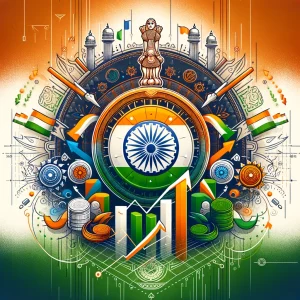Table: Key Differences Between Trading and Investing
| Aspect | Trading | Investing |
|---|---|---|
| Time Horizon | Short-term | Long-term |
| Approach | Technical Analysis | Fundamental Analysis |
| Risk | Higher, due to market volatility | Lower, due to long-term growth prospects |
| Effort | Daily analysis required | Initial in-depth analysis, less frequent monitoring |
| Goal | Immediate profits | Long-term capital growth |
| Suitable For | Individuals with market skills, quick decision-making ability | Individuals seeking passive income and long-term growth |
Trading and Investing: A Comparative Analysis
The Essence of Trading
Trading in the stock market is akin to engaging in a high-stakes game where quick decisions and daily analysis are paramount. Traders focus on short-term profits, employing technical analysis that includes studying market trends and patterns in charts and graphs. It’s a dynamic process, requiring adaptability and constant market vigilance. Traders often need to test various strategies and hypotheses to stay ahead.
The Art of Investing
Investing, on the other hand, is a long-term endeavor. It involves thorough initial analysis of a company’s financial health, future prospects, and industry trends. Once an investment is made, it requires less frequent monitoring compared to trading. The aim here is to build wealth over time through capital appreciation and dividends. Investing is often less risky than trading and is better suited for individuals looking for steady, passive income.
Who Should Choose What?
- For Trading: If you possess keen market insight, the ability to analyze real-time data, and are comfortable with higher risks for potentially higher returns, trading might be your arena.
- For Investing: If you prefer a less active role in the stock market, aim for long-term wealth accumulation, and are content with lower but steadier returns, investing aligns with your goals.
Integrating with Valuequity’s Tool
Understanding the differences between trading and investing is crucial for making informed decisions in the stock market. For those looking to delve deeper, particularly into investing, Valuequity’s “Value Stocks with 6 Different Valuation Methods – Excel File” could be a valuable resource. This tool, priced at a discounted ₹299, offers a comprehensive approach with methods like the Dhandho Model, Ben Graham Formula, and DCF. It’s especially handy for anyone wanting to simplify stock analysis and make informed investment choices. You can explore this tool further here.
Conclusion
Whether you choose trading or investing in the Indian stock market, the key lies in understanding your financial goals, risk tolerance, and the time you can dedicate to market analysis. As we step into 2024, with its unique set of economic and political factors, being well-informed and equipped with the right tools, such as those offered by Valuequity, becomes even more critical for success in the financial markets.




